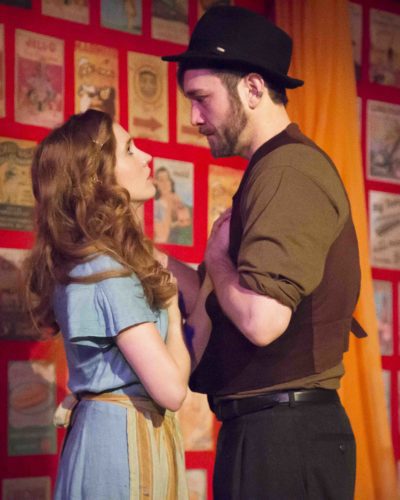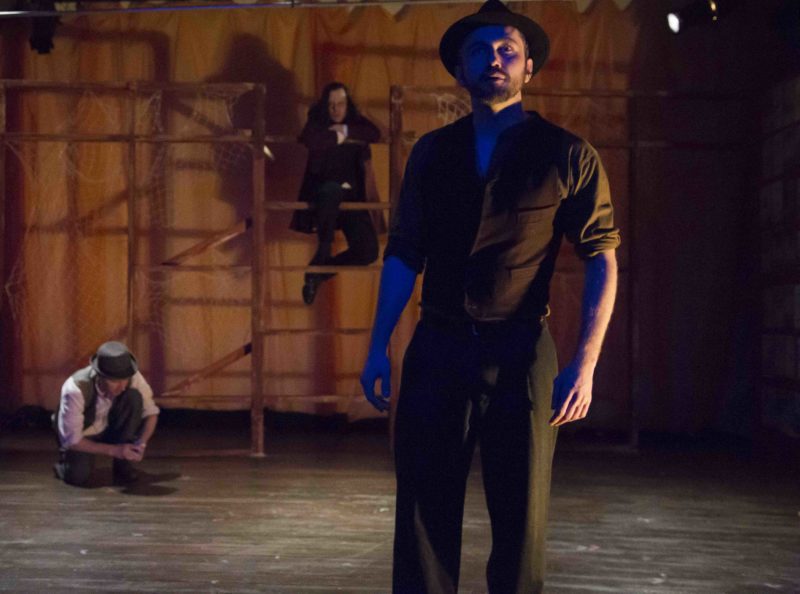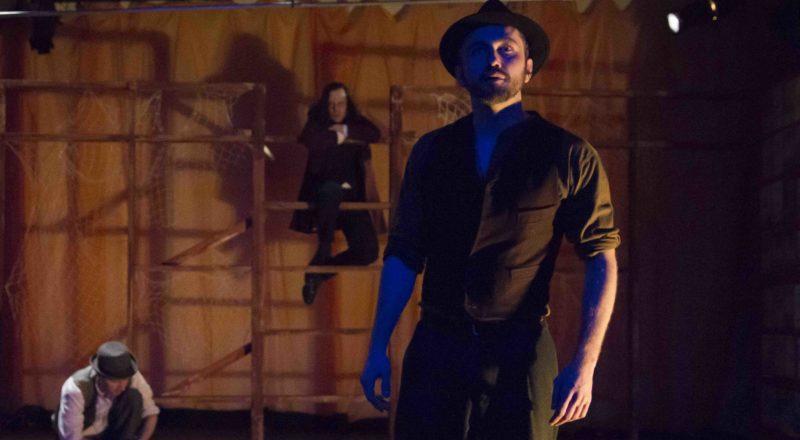INTERVIEW: Looking at the complex origins of ‘Carousel’

Although the Broadway headlines are focused on the new production of Carousel this spring, a smaller play is trying to attract theatergoers for a story that’s even closer to the original source material.
Jericho, written by Michael Weller and directed by Laura Braza, is currently playing at The Wild Project in a production from The Attic Theater Company. The show, set in Depression-era Coney Island, New York, is based off the Hungarian play Liliom by Ferenc Molnár. It is this eastern European drama that also served as inspiration for Carousel.
“I didn’t know that Carousel was based on this play at all,” Weller said in a recent phone interview. “I’ve known of Carousel since I was a kid, and it always puzzled me that it was a play about a form of domestic violence that ended up with this nice song about holding your head up high and not being afraid of the dark. I just didn’t get what the connection was, and then I found out it was based on this Hungarian play, which I read. And I thought, oh my God, this is a very fascinating, complex piece, and it’s funny. But it’s very, very central European sophisticated.”
Weller sought to build a new play that showcased Molnár’s original intentions. Liliom is set in Budapest at a fairground with a motley variety of dangerous characters. Weller updates the narrative by setting it in the early 20th century in that iconic New York City fairground of Coney Island.
“I thought, let’s see if we could put this in America in a way that made it clearer what the intention of the original was,” said the playwright, who was nominated for an Academy Award for his script for Ragtime. “The Depression jumped out right away. They just sort of skipped over it in the musical. I think the Great Depression was too fresh in everybody’s memory when they did the musical, but a big part of the original play is the fact that both the two main characters, because of their sudden love for each other, do a very impulsive thing and lose their job. So neither of them has any income, and that’s what spurs a great detail of the tragedy.”
Weller teaches a course in New York City on, of all things, adaptation. He has been using Liliom in the classroom for some time, but he always struggled with the Hungarian-to-English translation.
“The translation of that play always drove me nuts, and whenever I was reading it to prepare for close, I found myself scribbling different lines in the margins because it just made me crazy to read how it was translated,” he said. “Then I started to think that this play would work gangbusters. I mean, first of all, whenever I’ve taught the play, kids love it. I mean, really it strikes me how they keep saying, ‘How could this have been written at the turn of the last century? It’s so new, and the imagination in it is so fresh and unexpected.’ I thought, OK, that’s a good sign.”

Another impetus for adapting the play was Weller’s own father, an artist who would often tell him stories of the Great Depression. Weller’s father would ride the railroads of the United States to see real people and their struggles, and many of them would serve as inspiration for woodcuts and etchings.
“That really registered on me, a certain way people looked, a certain attitude they seemed to have when there was no food, when they were undernourished, in bad health and all of that,” he said. “I thought, put [that] together with Coney Island, where it was the only place people had to spend money, so people with very little would blow everything on Coney Island. I thought that seems to be very close to him feeling what Molnár, the original Hungarian playwright, had in mind for the play when he set it in this fairground in Budapest.”
Weller talked with Braza about staging the show because the director had produced a revival of Weller’s Moonchildren. The playwright thought she would be a great fit for Jericho, which continues until Feb. 10.
“[Moonchildren] was the best revival I’ve ever seen of the play, and I thought, this is somebody to watch,” Weller said of Braza. “So when I had this play in hand, it’s a very big cast, so it’s very difficult for what I call the cathedrals to do. I have to look for a chapel to perform this in, and Laura’s company is definitely a chapel sort of company. I said, ‘Do you think you can handle something like this? It’s a big play. It’s very scenic. It’s got big movement.’ She said, ‘You know, we could do it in a very small space, and it would be dynamic.’ So we started talking about it. I did several drafts while we spoke. She asked questions about certain things. I made some very important shifts in the play, so I’ve been working quite closely with her.”
Weller is a well-known playwright who has penned such shows as Fifty Words, Loose Ends and Spoils of War. He wrote the screenplays for Hair, Ragtime, Lost Angels and Spoils of War, and he was also responsible for the book of the Broadway musical Dr. Zhivago. His works have engaged audiences and sometimes been met with criticism and controversy.
It appears that each of his plays is built around a central challenge. For Jericho, the challenge was to find an actor who could bring the title character to life with intensity.
“I think the big secret of the play is to find a Liliom,” he said. “The original play was called Liliom, and to find a guy that could play Jericho, which is what I called the guy, was really the trick of it. He has to be dangerous. He has to be sexy. He has to be a real presence on stage, and that’s hard. That’s a very hard kind of person to find, so really the thing that jumped out at me was when this guy, Vasile Flutur, came in to audition. I thought, oh my God. I mean, he reminded me of an actor I worked with years and years ago, Tommy Lee Jones. The first time he did anything on stage, he was in a play of mine in the city, and I remember thinking, this guy is an animal. He’s dangerous, and that’s what Vasile is. I felt like that when I saw him start to audition. When he said he would love to do it, and he jumped on board, I thought, OK, we’ve got this. We’ve nailed it.”
By John Soltes / Publisher / John@HollywoodSoapbox.com
Jericho is currently playing at The Wild Project in Downtown Manhattan. Click here for more information and tickets.

